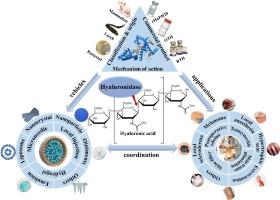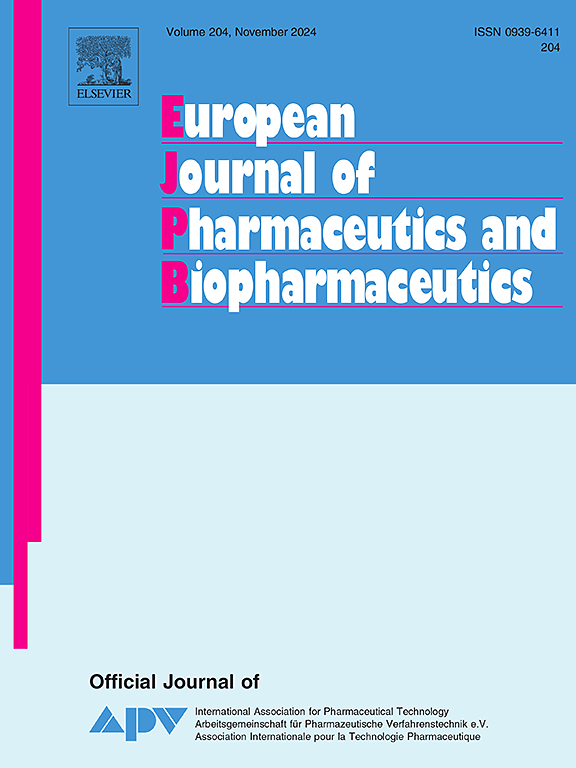Hyaluronidase overcomes the extracellular matrix barrier to enhance local drug delivery
Abstract
The stratum corneum of the skin presents the initial barrier to transdermal penetration. The dense structure of the extracellular matrix (ECM) further impedes local drug dispersion. Hyaluronidase (HAase) is a key component for the degradation of glycosidic bonding sites in hyaluronic acid (HA) within the ECM to overcome this barrier and enhance drug dispersion. HAase activity is optimal at 37–45 °C and in the pH range 4.5–5.5. Numerous FDA-approved formulations are available for the clinical treatment of extravasation and other diseases. HAase combined with various new nanoformulations can markedly improve intradermal dispersion. By degrading HA to create tiny channels that reduce the ECM density, these small nanoformulations then use these channels to deliver drugs to deeper layers of the skin. This deep penetration may increase local drug concentration or facilitate penetration into the blood or lymphatic circulation. Based on the generalization of 114 studies from 2010 to 2024, this article summarizes the most recent strategies to overcome the HAase-based ECM barrier for local drug delivery, discusses opportunities and challenges in clinical applications, and provides references for the future development of HAase. In the future, HAase-assisted topical administration is necessary to achieve systemic effects and to standardize HAase application protocols.


 求助内容:
求助内容: 应助结果提醒方式:
应助结果提醒方式:


